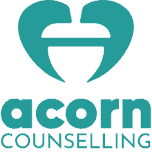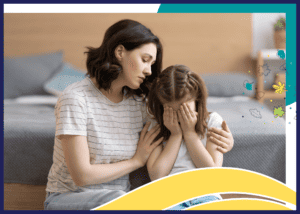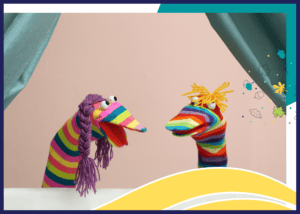How to Incorporate Acts of Self-Care in Everyday Actions

Do you ever find yourself feeling exhausted, short-tempered, easily irritated, or losing joy and energy in things you previously enjoyed? Perhaps mental or medical health concerns or other possible stressors related to work or relationships contribute to these feelings. If you had to put all your life expectations and commitments on a plate, what does your plate look like? Is it pretty empty, full, overflowing? What’s on your plate, more importantly, are you on your plate? I mean it, are you someone that you take care of and prioritize?
Before you respond with, “I have no time”, or “I can’t afford to”, or “that’s not what I need”, just know that I’ve been there and I didn’t think it was something I could fit in my schedule either. At other times, I felt guilty for taking time out for myself when I had so much to do and others were dependent on me. In fact, a part of me didn’t even buy into the concept of self-care, “how western and privileged”, I told my instructor once. I also didn’t want to take care of myself after I took care of everyone and everything else. I wanted someone to take care of me, to know that I mattered and I was appreciated. Does any of this sound familiar?
So just hang in there one moment. The purpose of this article isn’t to talk about how to practice self-care and how often we should do it, or even how wonderful it can be for our mental and physical health. There are many articles on the web to offer insight in all this and more. If you’re not sure what self-care is, try this article from the International Self-Care Foundation. What I want is a moment to explore how on earth can you put yourself on that plate in a way that fits with your current life demands and lifestyle.
First, let’s define what self-care means for you.
It doesn’t have to be bubble baths and Champaign, it doesn’t even have to be you in solitude. If the world is your oyster, then self-care is the irritant you put inside it to make your pearl. Here’s a starter, think of self-care in terms of physical/biological care, mental/mind care, spiritual care, relationship or relational care, and environmental self-care.
For me, self-care boiled down to getting 8 hours of sleep after having my little one nearly three years ago. Before this act of self-care, I was getting anywhere from 4-6 hours of broken sleep and it just didn’t work for me. How did I know? I was often tired but heightened, short in my responses, unexpectedly emotional, and often physically ill. One day, I listened to my body and slept early, getting 8-9 hours of sleep and the difference in my mood and energy level the next day was apparent. A game changer if you may. Since that day, two years and a month ago, I have become an advocate for sleep in my personal life and have begun to transfer the practice of self-care to other areas of my existence.
How can we normalize the practice of self-care?
Let’s focus on incorporating self-care into pre-existing parts of your life. Can we double up on your time by using your commute to practice self-care, or perhaps on your walk back from dropping the kids off to school. For instance, if your self-care is to read, how about an audiobook during these times instead. Or how about stacking self-care on an established habit such as brushing your teeth or preparing breakfast. Maybe you can do your stretches while getting ready for bed or maybe getting a serving of protein in you while you serve breakfast to others. How about taking others up on their offer to support us and use that time for self-care. Oftentimes we think we are absolutely alone and filter out the negatives, but let’s pause and re-evaluate. Is there really no one that can offer you respite for one hour a week, maybe 30 minutes? Let’s be open to accepting the support without feeling guilty or burdensome to others. We’re not in this alone, humans are designed to be social creatures and rely on connections from others to survive and thrive.
The key to a sustainable self-care plan is to add yourself on that plate, not additional commitments. By incorporating self-care in everyday actions through the intention of taking care of yourself, we begin to give ourselves the message that we long to receive from others, “I matter and I appreciate myself”.
If you’re feeling stuck on identifying some self-care strategies to start off with, please allow me to share some from my own journey:
- Eat an egg in any form for breakfast (that protein can go a long way in terms of energy and mood regulation)
- Go to bed when my son goes to bed (yes, 7:30 pm bedtime is legal for adults and so is the 11 hours of sleep I got)
- Stretch my legs before getting out of bed (invite others to do it with you too, playfulness can foster that relational care)
- Make a meal for the family that I want to eat (so what if I choose the menu for today, flexibility for others is an important skill set to learn too)
- Listen to a TED talk during my commute (music isn’t the only thing that can energize me, fueling my soul and intellect are also exhilarating)
- Sit in silence and reflect (I don’t always have to be the entertainment for my child, I can model silence)
Need more ideas or some inspiration? Refer to this article on 45 Simple Self Care Practices for a Healthy Mind, Body, and Soul from Tiny Buddha.
If you’re not sure where to begin, please reach out. In as little as a single counselling session, we can together develop a self-care plan that is realistic and attainable for the season of life you’re currently in. Contact Acorn Counselling and we would be delighted to work collaboratively with you to put you back on your menu.

Zainab Choudhery, MA (Candidate), RP (Qualifying)
Clinical Intern
My name is Zainab and I identify as a Muslim-Canadian. I am a proud Child and Youth Care Worker and currently a MA candidate and practicum student at Acorn Counselling. I am passionate about mental health and supporting others in achieving their goals through expanding their strategy toolbox. My favourite colour is pink, my favourite drink is water, and my favourite person is my three old toddler. I’m a fan of novels based on true socio-economic political events and am deeply moved by the work of Khaled Hosseini.






